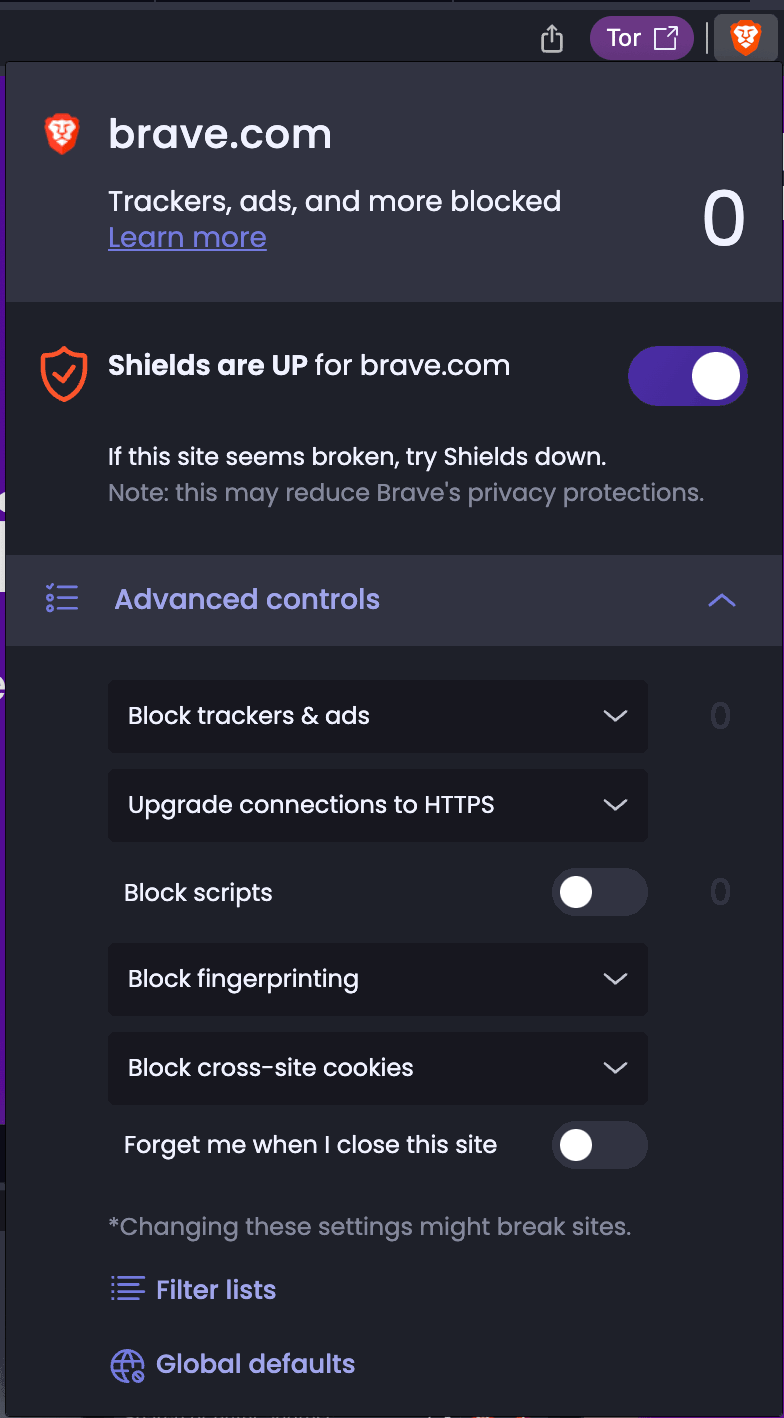The privacy-focused Brave Browser is introducing a new "Forgetful Browsing" feature that prevents sites from re-identifying you on subsequent visits.
This new feature will clear not only cookies at the sites you specify but also data in local storage and the cache when you close a website. While this will also automatically log users out of sites, it also prevents re-identification when they return to the site at a future time.
Users can enable "Forgetful Browsing" from the software's settings menu, either for all websites (global default) or for a specified list of sites.
"When this option is set, Brave will clear first-party storage for the site a few seconds after there are no more open tabs for the site," explains Brave Software's announcement.
"Forgetful Browsing clears both explicitly stored values (e.g. cookies, localStorage, or indexedDB) and indirectly stored values (e.g. HTTP cache or DNS cache)."
The Brave Software team explained that although its browser offers robust protections against third-party tracking, the privacy issues that arise from first-party tracking remain somewhat unaddressed.
Focusing on first-party tracking
First-party tracking has taken the back seat in the privacy-protection considerations of browser engineers because users consciously choose what websites they visit and naturally have better control and a clearer understanding of where their data goes.
While first-party cookies are important for a good website experience, such as staying logged into a site or keeping track of read content, several risks are still associated with letting a website re-identify visitors indefinitely.
These risks include building rich user profiles for targeted advertising by aggregating more data, and associating multiple visitor accounts with the same person or same household, thus breaking privacy-proofing barriers.
Brave says that most modern web browsers already offer features or tools to deal with this problem. However, they're either too fragmented, cumbersome to use, either too generic or too specific, or entirely hidden from the user.
Hence, the team decided to develop Forgetful Browsing as an integrated tool that will be easy to enable and disable and won't require any user vigilance or specific intervention after setting up.
To set the global default setting for 'Forgetful Browsing,' head to Settings → Shields → Click "Forget me when I close a site."

The 'Forgetful Browsing' setting on Brave settings menu (Brave)
Website-specific situations like adding an entry or an exclusion from the global default will be as simple as navigating to the site, clicking on the shields icon on the right side of the URL bar, clicking "Advanced controls," and then switching the toggle of the feature to the "on" position.

Site-specific option on the URL bar
(Brave)
Brave clarifies that 'Forgetful Browsing' will apply to sites and not domains, contrary to how most settings in Shields work.
The new feature will be made available on Brave browser for the desktop version 1.53 (current stable is v1.51), while Android users will get 'Forgetful Browsing' a bit later, with version 1.54.




Recommended Comments
There are no comments to display.
Join the conversation
You can post now and register later. If you have an account, sign in now to post with your account.
Note: Your post will require moderator approval before it will be visible.